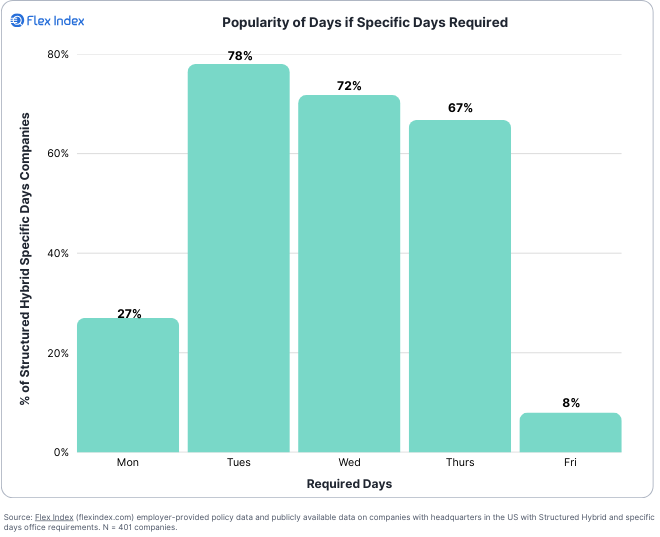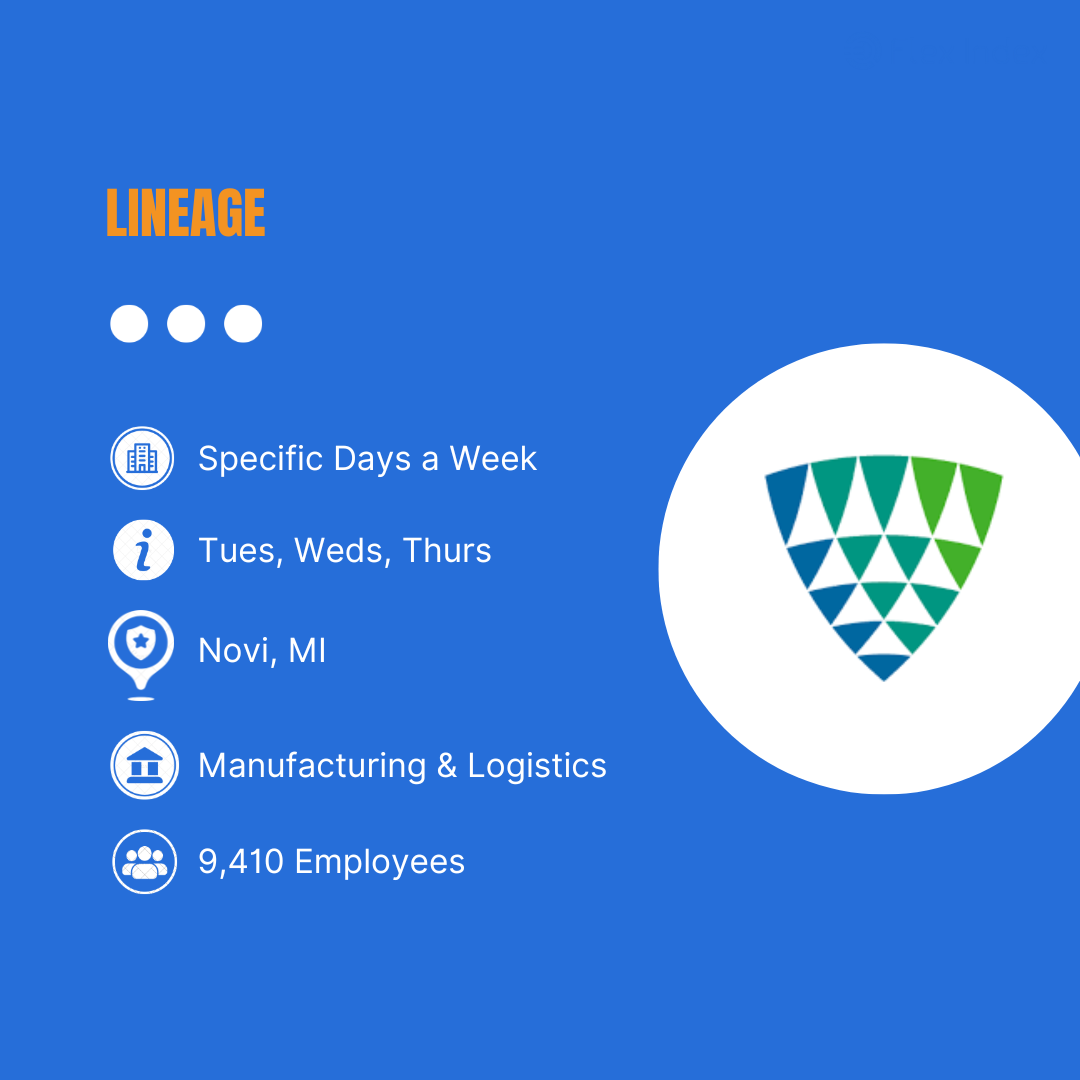The Unexpected Remote Work Winners
Plus, how employees are quietly revolting against RTO mandates
👋 Happy Tuesday! Workers are literally putting their money where their flexibility is. Owl Labs’ ninth annual State of Hybrid Work report found that employees would sacrifice an average of 9% of their annual salary just for flexible working hours. Turns out freedom has a price tag, and workers know exactly what it’s worth.
In this week’s edition:
🏡 Remote Work isn’t Just for Tech
📊 Most Common Office Days
☕️ Coffee Badging & RTO Revolts
Current Subscribers: 10,381
Please forward to colleagues and friends!
THIS WEEK’S FLEX FOCUS 🔍
Remote Work Isn’t Just for Tech Startups Anymore
New research from the Institute for Corporate Productivity (i4cp) challenges assumptions about which companies can successfully operate remote-first. Their survey of 59 organizations—spanning from Chick-fil-A to Delta Dental to Zillow—reveals that distributed work models are thriving across unexpected industries.
The productivity concerns that dominated early pandemic debates appear largely settled: 83% of remote-first executives reported high or very high productivity, with 62% eschewing employee surveillance technology entirely. The real story isn’t efficiency gains but talent competition: 72% adopted remote-first primarily to expand hiring pools, with cost reduction ranking much lower.
Most striking is the trust factor. Some 90% of leaders say colleagues act in each other’s best interest, a metric that i4cp research shows triples team effectiveness. The companies making remote-first work aren’t just changing locations; they’re fundamentally rethinking how work gets done.
FLEX WORK QUICK HITS 💥
Stay ahead of the curve with our curated roundup of the trending flexible work stories making waves right now. Here's what you need to know 👇
Forbes: Companies have tools to counter RTO’s working mother exodus if they choose to use them. Flexible work options, employer-sponsored childcare, and individualized support could reverse the steepest workforce decline among mothers in 40 years.
Fast Company: Multiple leaders argue that RTO mandates damage trust, waste infrastructure money, and miss the real productivity issues.
HR Digest: Despite threats, surveillance, and ultimatums, office attendance remains flat. Even Dell’s promotion freeze backfired when employees chose remote work over career advancement.
STAT OF THE WEEK 📈
What Are the Most Common Office Days?
Tuesday through Thursday remain the most common days for Structured Hybrid firms with a Specific Days (or Minimum Percentage and Specific Days of the week) policy. Fridays are the least common, with only 8% of these firms requiring Friday attendance.
Out of all firms with a Structured Hybrid approach, only 1% require Friday attendance (7.7% of 15.6% of Structured Hybrid firms requiring Specific Days).
FLEXPERT INSIGHTS 🧠
Coffee-Badging and Other Quiet RTO Revolts
In his latest opinion piece for The Hill, Dr. Gleb Tsipursky exposes the growing disconnect between corporate mandates and workplace reality. Despite the required in-office time climbing 13% this year, actual attendance has remained “flat as a pancake.”
The resistance isn’t confrontational, it’s creative. “Coffee badging,” where employees swipe in, grab a latte, and disappear to work remotely, has become so common 44% of workers admit to the practice. Companies respond with escalating surveillance that Dr. Gleb argues damages morale without capturing creative contribution.
His prescription? Focus on outputs over presence. Small businesses get this: 70% offer full location choice compared to just 12% of large enterprises. The warning for leaders: “Those who cling to swipe tallies will watch talent keep inventing exit routes.”
COMPANY SPOTLIGHT ✨
Lineage is the global leader in the temperature-controlled logistics industry, offering innovative cold storage and transportation solutions. Their mission is to help feed the world by fighting food insecurity and eliminating waste through creating efficient, reliable, and sustainable supply chains that connect food and beverage companies to communities around the globe.






